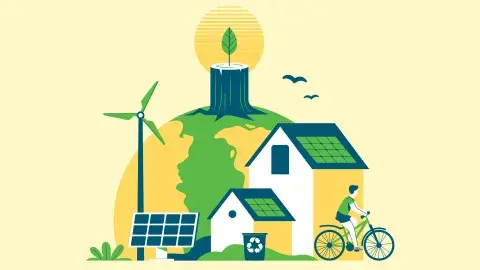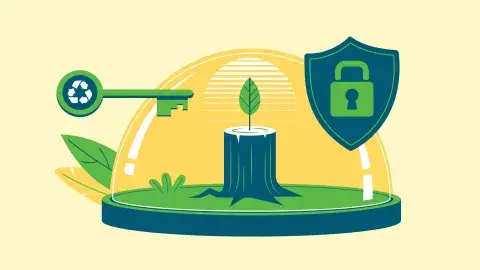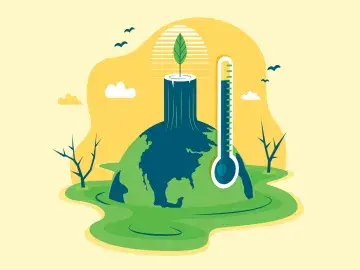Faith and Climate Change
It is increasingly recognised that faith leaders and faith-based organizations (FBOs) are essential contributors towards attaining the Sustainable Development Goals (SDGs) and addressing environmental and climatic crises. Acknowledging this, the United Nations Environment Programme (UNEP) launched the Faith for Earth Initiative to strategically engage with FBOs, mobilise greater faith-inspired environmental action, scale-up faith actors’ capacities and catalyse greater synergies between them and other stakeholders. This short, self-paced, e-learning course, focusing on climate change, forms part of this commitment.
Global climate change is arguably the defining challenge of our time, and faith actors must be informed and empowered to play their part in addressing it. Climate change presents not only an environmental issue, but a political, scientific and economic one. Indeed, given the inherent inequalities in its causes and manifestations, at its root it is also a social justice and human rights issue. As we explore in this course, climate change should also be considered a moral and spiritual issue that galvanises faith and interfaith action to address it. Addressing climate change requires the engagement of all sectors of global society, with this course focusing on the role of faith actors, drawing on the particular qualities and comparative advantages they have.
KAICIID launched the FAITH4SDGS Project. More information and material can be found here: https://www.kaiciid.org/content/sustainable-development-goals-sdgs
This e-learning course is designed for religious leaders, faith-based organizations, civil society, non-governmental organizations, UN agencies, other multilateral institutions, government officials, policy and decision-makers and individuals interested in this subject. Whilst the focus is on faith actors, faith perspectives and faith-led action, this course seeks to contribute to building synergies amongst different stakeholders, highlighting the value of engaging with faith actors in addressing this challenge.
The goal of this course is to build the capacity of faith actors in addressing climate change and demonstrate to other stakeholders the value of engaging with them, aligning with the objectives of SDG 13 – Climate Action.
At the end of this course, participants will:
- Understand the broad issue of climate change, the essential scientific evidence showing that it is caused by human activity, the immense threats it poses and the urgent need to address it.
- Recognise different ways, mechanisms and global strategies to address climate change, with special emphasis on the role of the UN system.
- Identify different faith perspectives on nature and the environment as they relate to the contemporary challenge of climate change, demonstrating this is a shared concern amongst all faith traditions.
- Have knowledge of activities already implemented by faith actors that seek to adapt to and mitigate against climate change, where inspiration can be drawn.
- Gain insight into how to measure and reduce Greenhouse Gas emissions.
- Better understand the role FBOs can play in tackling climate change and the value of working with faith actors on this issue.
Since its inception in 1972, the United Nations Environment Programme (UNEP) has been the global authority that sets the environmental agenda, promotes the coherent implementation of the environmental dimension of sustainable development within the United Nations system and serves as an authoritative advocate for the global environment. UNEP’s mission is to provide leadership and encourage partnerships in caring for the environment by inspiring, informing and enabling nations and peoples to improve their quality of life without compromising that of future generations. UNEP works closely with its 193 Member States and representatives from civil society, businesses and other major groups and stakeholders to address environmental challenges through the UN Environment Assembly, the world’s highest-level decision-making body on the environment.
This interactive digital course is specifically designed for busy professionals who do not have time to take the longer, moderated eight-module course on ‘Faith, Environment and Climate Change’. They can now select the relevant thematic topics and modules and learn on the go. Administered through a Massive Open Online Course (MOOC) platform, this short course takes around two hours to complete and can be taken anywhere, anytime, at a pace that suits and from a phone or a computer.
Modern and updated browsers.
A Certificate of Completion will be issued to participants who achieve a minimum total score of 70%.
E-Learning in IRD designed for the general public


